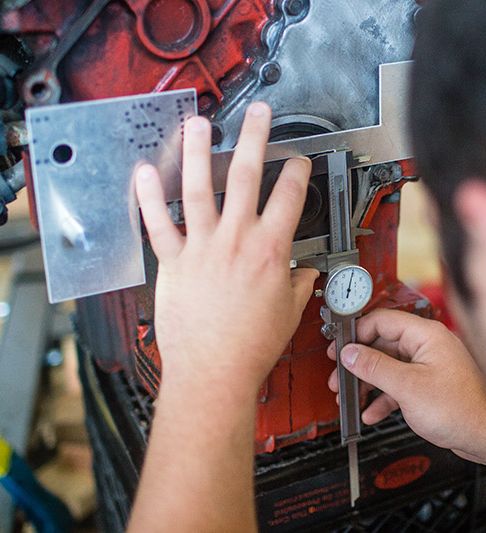Overview
The curriculum in engineering mechanics is designed to prepare students for careers in engineering research and development, and it is especially appropriate for students wishing to specialize in the analysis of engineering systems. In many industries and governmental laboratories there is a demand for men and women with broad training in the fundamentals of engineering in which engineering mechanics and applied mathematics play an important role.
Curriculum Layout
The first two years of the curriculum is the same as that in mechanical engineering. One of the advantages of the curriculum is the flexibility it offers through 18 credits of technical and six credits of personal electives in the junior and senior years. Beyond the sophomore year there are required courses in dynamics, solid mechanics, fluid mechanics, heat transfer, principles of electrical engineering, mathematics, vibrations, and senior laboratories or projects.
Electives
It is recommended that the electives be chosen either to concentrate in areas such as applied mathematics and computational mechanics, solid mechanics, engineering materials, and fluid mechanics or to obtain further depth in all areas. The academic advisor for the engineering mechanics program will provide guidance in formulating the student's goals and choosing electives.
Humanities and Social Science
In addition to the required and elective courses in mathematics, sciences and engineering, the B.S. degree program in engineering mechanics includes a minimum of seven courses in humanities and social sciences (see humanities/social sciences). The total graduation requirement is 127 credits.

